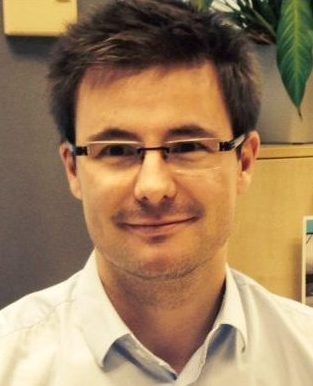CPH POST caught up with Iker Echave, the Spanish ‘customer service excellence’ at Maersk Line, to hear more about his professional life.
When did your career begin at Maersk?
It all started in 2005. I undertook a Maersk internal program, the Maersk International Shipping Education (MISE). While it was for fresh university graduates, we also had people who came directly from high school. It was truly global, and it was without question one of the best learning experiences of my life. Many of us are still with Maersk 12 years later, and even though some of us no longer work for the company, we maintain a friendship and we all keep a very strong emotional attachment to Maersk. These days the GO with Maersk Program targets more senior people, such as MBA graduates, but it maintains some of the principles of MISE, like job rotation and expatriation. The company wants to take people outside of their comfort zone to maximise their learning.
Tell us more about your career at Maersk?
I work in customer service, so we are the people who try to make the experience of shipping seamless. From the moment you plan a shipment until the cargo is finally delivered, we will be watching to make sure everything goes as plan, preventing surprises and dealing with exceptions when they occur. It is a fascinating challenge when you consider we move 10 million containers a year. I try to help our teams around the globe to optimise our processes and standardise our service delivery, so that a customer, no matter in which part of the world he/she is, feels that we take care of their cargo as they would.
So you have worked in several countries, but you have returned to Denmark. Why Denmark again?
For the great weather! This is my second time in Denmark. I have also previously worked in China on two occasions. I typically follow the best job opportunity that I can find, and of course Denmark, being the head office, is a place with many interesting opportunities. That being said, I think Denmark is a great place. I like the working culture, how safe it is, how clean it is, how welcoming the people are, the healthy lifestyle, and the fact you can bike everywhere. If only it was a little warmer …
How long have you been in Denmark this second time?
It’s been 18 months.
What’s it like working as a foreigner in a Danish environment. How international is the culture of the company?
Maersk is truly international. In my team, I have colleagues from the Dominican Republic, Germany, Thailand, China, Indonesia, Ukraine and, of course, Denmark. There are probably more than 100 nationalities represented at [the Maersk Line headquarters on] Esplanaden. I think if there is an international company, this is it. I love that about it. I really like the Danish working culture. People are respectful, but straightforward. If they do not agree, they will tell you openly. I can see there is a sense of fairness and justice and typically the best person gets the job. This is not common. In other countries, knowing the right people is more important than your performance.
Tell me three things that have surprised you the most about your working life in Denmark
– The respect for personal time and work-life balance
– The respect for timeliness: meetings begin and end on time
– A negative one … I think Denmark does not have a very customer-orientated culture (except at Maersk Line where we love our customers!)
Can you tell us what you consider to be the best thing about working for Maersk?
The values and company culture. Maersk is a company genuinely committed to bettering the world, enabling global commerce that has been the catalyst to getting billions of people out of poverty. Maersk is also genuinely concerned about improving its environmental impact. In how we treat people, I have always felt valued and respected. I have met many colleagues who have left Maersk, and with very few exceptions a large majority have positive words about the company and cherish their time there. I think this is one of the best things that can be said about a company.
And what about working in Denmark?
I have only worked for Maersk, but I can say that salaries and working conditions are generally very good, and that the unemployment rate is very low. I would recommend anybody to come here.
What do you miss more about working in your home country, Spain?
In Spain, people tend to mix personal relationships into business. That can make our days a little longer, but typically we end our days going out together to bars and to have dinner. Spanish people try to make their colleagues their friends, and that comes in very handy when you have had a bad day!
Which three pieces of advice would you give to somebody contemplating a career in Denmark?
– Learn Danish (I did not!)
– Do not limit yourself to jobs where you meet the criteria of the job ad – people look for skills and competences, not specific experiences
– Look for a company where you will feel proud to say: “I work here”














